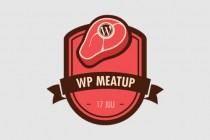
Somewhere last year I decided I needed to start working on something fun that had nothing to do with WordPress. It’s not that I don’t like WordPress anymore or that I’m moving away from it, it’s that I’ve worked with WordPress full time for years now. Where I used to work with other languages and/or frameworks before, this became less and less over time. And when I finally started Never5, the WordPress bubble was at an all time high.
Bubbles
For something we enjoyed so much as children, the word Bubble has a surprisingly negative feeling to it. What do I mean with a bubble? Take the WordPress bubble I just mentioned. The more I used WordPress and got involved in its community, the more people I talked to did WordPress. More and more of the people you start following on Twitter are active in the WordPress community. So the news you see and the conversations you have are more and more about WordPress. This goes on until the point that your (work) day consists for 100% of WordPress.
Don’t get me wrong, I don’t think these bubbles are bad. It’s only natural to find peers that share your interests. I’ve met some amazing people that I now call friends thanks to it. But there are some downsides to these bubbles in my opinion. Without discussing things like the social dangers they can bring I’d like to focus purely on the technical dangers. In this post specifically in the WordPress bubble.
To Stand Still is to go Backwards
While this quote is probably true in many aspects of life, it definitely is in technology. The languages we write in, the frameworks we build upon and the tools we use change. Some get better, others simply get replaced. These changes don’t all happen overnight. Languages and frameworks release new versions every so often, giving users time to read, learn and implement them.
But what if you only work with one framework (in my case WordPress) for years. And what if this framework wasn’t the type of framework that liked to keep up with updates and techniques. Sure I knew new versions of PHP were available, I knew JavaScript libraries like React existed, I knew about other (newish) languages like Golang but never worked with them.
Why didn’t I work with them? Because I couldn’t use it in my day to day work anyway. And on top of that, no one I talked to / followed used them or talked about them. I build and sell WordPress plugins for a living. WordPress still supports PHP 5.2.4, PHP 5.2.4 was released on 30 August 2007. This means as a WordPress developer, I don’t get to use any of PHP’s ‘new’ features introduced in the past 10 years. And this list of new(ish) techniques I have never worked with kept growing. A thought that honestly kind of scared me.
Breaking out of the Bubble
Although I personally think it’s ridiculous WordPress supports deprecated PHP versions. I can’t blame WordPress for everything. Solely working with any framework will always limit you in learning new things. For example, no PHP framework will introduce you to a language like Golang. So how does one that has been standing still in a bubble for so long break out of it? By starting a project that’s so far outside of your (development) comfort zone you honestly have no idea how to build it.
Meet Brass
This is probably the worst introduction for a new project ever given but that’s how Brass started. I wanted to create something fun in a language and/or frameworks that is new, in demand and I’ve never worked with. Lex, a childhood friend of mine, and I had talked about making a game like this for years. So September last year we had another round of We should really build a game that does X talk, only this time we actually did it.
We decided to build the Game engine and API in Golang and have a front-end which would be purely written in JavaScript. After some research we’ve decided to use Preact, a fast 3kB alternative to React with the same ES6 API. Preact is fully compatible with React while being (very) small, this made it an absolute winner for me. One of the nice things of this setup was that our API (back-end) and Preact App (front-end) would be completely separated from each other. They run on different (sub) domains and can (when needed) even run on different servers without any modification to the current code.
Neither Lex or I had ever worked with Golang or Preact. On October 29th, 2016 I pushed the first commit to the Brass repository and now almost 6 moths later we’re almost ready to launch a Beta version of the game. If you’re interested in reading more about Brass and the closed Beta, you can do so here.
After some closed Alpha rounds with friends, we noticed having (native) mobile applications would increase engagement with the game a lot. We’re currently working on these apps and when done I’ll write a separate post on how these are build.
What About WordPress?
I want to conclude this post by saying that I’ll stay active in the WordPress community as a plugin developer and meetup organizer. I love working on my plugins at Never5 and I still think WordPress is a great platform for many use cases. In my opinion, you don’t have to leave a bubble to break out of it. These days I just don’t solely do WordPress. Every Friday I have a R&D (FUN!) day. These days I’ve spent working on Brass for the past 6 months, learning new languages and new frameworks. On top of having a ton of fun learning new things I noticed I’m also becoming a better developer in general. Winning!





If I had found the wherewithal to write up a post that encapsulates my thoughts and desire to break out and work with entirely unfamiliar languages and methods this would have been it. Exactly this. I love WordPress, but I was feeling like the world had passed us by, and it worried me. Almost a year ago, I started a Polymer project. It’s completely changed the way I think about Working with WordPress. I’ve met great people, from Google and in those communities. Don’t get me wrong, I’m not leaving WordPress, but I’ve shifted our focus to a much more WP-REST API, WP-CLI use of WordPress, and it’s breathed new life into our business model. Thank you for this. Now, I’ve gotta go look at Brass. ?
I’m glad to hear I’m not the only one facing this issue, John! Thanks for taking the time to leave a comment!
I sometimes get sad seeing fellow developers trying out. Ew tech and building stuff with them while I in the other hand is neck deep in my WordPress plugin business.
Great to see you’ve broken away and so far loving it.
All the best mate.
I think you’ll always be “neck deep” into whatever your doing until you decide to try something else. Why don’t you try something new for say 4 hours a week first. I strongly believe it’ll eventually help you with your WordPress business as well! 🙂
Good luck and thanks for your comment!
I totally understand the feeling and the pull to do something else Barry.
Great shares are interesting to learn.
In India it still works for many , from house hold to entrepreneur , from individual to big digital agency. Its easy to build and use have created online presence for many small business owner. The agency also develop on word press for there clients if their budget is low. Today i will still support WP framework. Appreciate your effort and dedication for giving years to this framework
nice Post Barry. I am also a dev. 🙂
It’s really appreciable post. I liked it:)